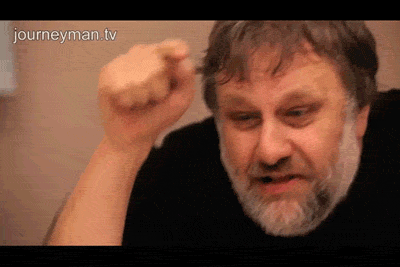WikiLeaks’ achievement is nicely encapsulated by Assange’s ironic self-designation as a ‘spy for the people’. ‘Spying for the people’ is not a direct negation of spying (which would be acting as a double agent, selling our secrets to the enemy) but its self-negation, i.e., it undermines the very principal of spying, the principle of secrecy, since its goal is to make secrets public. It thus functions in a way similar to how the Marxist ‘dictatorship of the proletariat’ was supposed to function (but rarely did of course): as an immanent self-negation of the very principle of dictatorship. To those who see Communism as a scarecrow we should say that WikiLeaks is doing the practice of the Communism. WikiLeaks simply enacts the commons of information.
“To those who see Communism as a scarecrow we should say that WikiLeaks is doing the practice of the Communism. WikiLeaks simply enacts the commons of information” – Zizek
In the struggle of ideas, the rise of bourgeois modernity was exemplified by the French Encyclopédie, a gigantic venture that systematically presented all available knowledge to a broad audience. The addressee of this knowledge was not the state but the public as such. It may seem that Wikipedia is today’s Encyclopédie, but something is missing from it: the knowledge that is ignored by and repressed from the public space, repressed because it concerns precisely the way state mechanisms and agencies control and regulate us all. The goal of WikiLeaks should be to make this information available to all of us with a single click. Assange is today’s d’Alembert, the editor of this new Encyclopédie, the true people’s encyclopedia for the twenty-first century. Why?
Our informational commons recently emerged as one of the key domains of class struggle in two of its aspects: economic in the narrow sense and socio-political. On the one hand, new digital media confront us with the impasse of ‘intellectual property’. The very nature of the World Wide Web seems to be Communist, tending towards the free flow of data – CDs and DVDs are gradually disappearing, millions of people simply downloading music and videos, mostly for free. This is why the business establishment is engaged in a desperate struggle to impose the form of private property on this flow by enforcing intellectual property laws. This free circulation, of course, brings about its own dangers, as was pointed out by Jaron Lanier, who sees a threat in the very feature of the digital space that is usually celebrated as its greatest social achievement, the free circulation of data and ideas: this very openness gave birth to non-creative providers (Google, Facebook) who exert an almost monopoly power to regulate the flow of data, while individuals who create the content are lost in the anonymity of the network. Lanier’s solution is a massive return to private property: everything that circulates on the web including personal data (which sites I’m visiting, say, or which books I check on Amazon) should be treated as a valuable commodity and remunerated, plus everything should be clearly attributed to an individual human source. While Lanier is right that the anonymous anarchic free circulation engenders its own power networks, one should nonetheless question his proposed solution: is global privatization/commodification really the only way to do it? Are there no other forms of global regulation?
“In our daily lives, we more and more resemble baboons. That is to say, why do baboons have big, protruding, hairless red butts?” – Zizek
On the other hand, digital media (especially with the almost universal access to the internet and mobile phones) opened up new ways for millions of ordinary people to establish a network and coordinate their collective activities, while also offering state agencies and private companies undreamt-of possibilities of tracking our public and private acts. It is into this struggle that WikiLeaks intervened in such an explosive way. For Jacques Lacan, the axiom of the ethics of psychoanalysis was: ‘Do not compromise your desire.’ Is this axiom also not an accurate designation of the whistle-blowers’ acts? This uncompromising stance is a constant reminder that, in our daily lives, we more and more resemble baboons. That is to say, why do baboons have big, protruding, hairless red butts? The main reason seems to be that the buttocks of a female in heat will swell so the male knows that she is ready to mate. It also functions as a sign of submission, where one animal turns and presents its rump to the other, implicitly saying, ‘I know you’re stronger than me, so let’s not fight anymore!’ The baboons with the redder, more hairless butts attract more mates and have more offspring, and, in their turn, the offspring are favoured because, on average, they have redder, more hairless butts than the rest. Is this not how the struggle for ideological hegemony also looks? Individuals display their hairless protruding butts, offering themselves to be penetrated by ideological messages. There is no need for violent imposition; the victim voluntarily offers itself – as was made clear when we recently found out about the massive digital control of our lives.
Slavoj Zizek, Trouble in Paradise: From the End of History to the End of Capitalism

